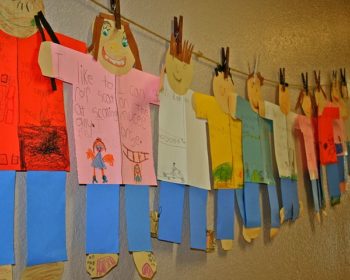How to Plan for Kids’ Summer Schedules!
 The school year is already halfway over. Parents are meeting with teachers to discuss their children’s academic needs and summer tutoring programs. Camps and academic-based programs are already registering kids for summer programs. It can become overwhelming when trying to decide what is best for your child’s personal growth and recreational fulfillment. Listed below are guidelines to consider when selecting summer activities:
The school year is already halfway over. Parents are meeting with teachers to discuss their children’s academic needs and summer tutoring programs. Camps and academic-based programs are already registering kids for summer programs. It can become overwhelming when trying to decide what is best for your child’s personal growth and recreational fulfillment. Listed below are guidelines to consider when selecting summer activities:
Parenting Considerations for Academic Support
- Meet with your child’s teacher to determine if your child needs to further develop age appropriate skills. Some children may need practice with small muscle coordination or large muscle exercise. While other children may need additional practice with solving math problems or reading. The teacher can suggest appropriate types of activities for your child.
- Keep it simple. Find a summer program that can support some academic play, lots of outside play, and art enrichment activities that will stimulate your child’s inquisitive and creative nature. The summer program should enhance your child’s readiness for next year’s classes.
- Give your children your gift of time. Schedule weekly playdates with your children. These activities can include going to the beach, taking a nature walk, or just sitting and reading a book under a tree.
- Join a library reading program and encourage your children to read daily.
- Let your child help a younger child with an art project or reading together.
Play and Vacation Options
- Schedule playdates with classmates. Try to schedule summer programs that can be shared with classmates.
- Let the children play in dirt, water, and muck! They can teach all of us the power of observation and exploration. Ask questions about what they are doing and have them describe what they are experiencing.
- Take a family vacation. You can camp at a park or share a cabin with a group of friends. Our favorite vacations were shared with friends. Our friends’ children shared experiences and play with our children. Group family vacations also provide a support system for parents.
- Schedule a family day of giving service in the community by picking up trash, serving meals at a homeless shelter, or visiting seniors at a senior center.
- Host a getaway camp with family members or friends. These overnight and multi day visits with grandparents, family, or friends without parents can provide all with a new adventure and respite during the summer. We take grandkids to the beach or have them participate in state park junior ranger activities while our children take a break from parenting responsibilities.
Listening to Your Kids’ Needs
As you plan your children’s summer programs, listen to their needs and consider their current interests. This will ensure that you provide a nurturing activity that will keep their interest while supporting their healthy development.
Much coordinated planning success!
Mary Ann

Mary Ann Burke, Ed.D., Digital Education Expert, is a substitute distance learning teacher for Oak Grove School District in San Jose, California and the author of STUDENT-ENGAGED ASSESSMENT: Strategies to Empower All Learners (Rowman & Littlefield: 2020). Dr. Burke creates digital language arts and substitute teaching K – 12 activities for teachers and parents. She is the Cofounder of the Genparenting.com blog. Burke is the former Director II of Categorical & Special Projects for the Santa Clara County Office of Education that supports 31 school districts serving 272,321 students in Santa Clara County. She is also a previous Director – State & Federal Compliance for Oakland Unified School District, the former Director – Grantwriter for the Compton Unified School District, and was the initial VISTA Director for the Community Partnership Coalition in southern California. Much of her work focuses on creating innovative digital trainings and partnership programs for teachers and families to support students’ learning. These programs were featured as a best practice at a National Title I Conference, California’s Title I Conferences, AERA Conferences, an ASCD Conference, the NASSP Conference, and statewide educator conferences.

